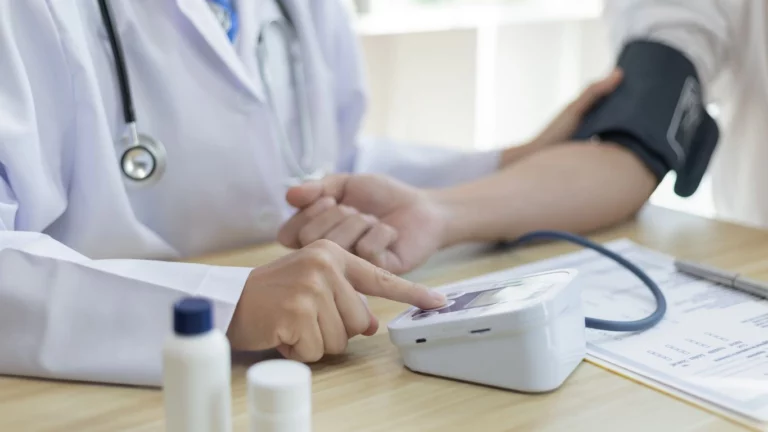How to Calm Heartburn Quickly: Fast Relief Tips That Actually Work
If you’ve ever found yourself mid-shift, charting notes or rooming patients, and suddenly that fiery, uncomfortable sensation rises up in your chest—yeah, heartburn strikes again. I’ve been there. Working as a Medical Assistant in a busy Gastroenterology clinic has given me a front-row seat to how common (and disruptive) heartburn can be. And when it hits, the first thing on anyone’s mind is usually: how to calm heartburn quickly. Whether you’re at work, out at dinner, or trying to fall asleep, relief can’t come fast enough. So let’s break down what actually helps, based on real experience and expert advice I’ve picked up from my time in the field.
What Exactly Is Heartburn Anyway?

Let’s get one thing clear—heartburn has nothing to do with your heart. It’s a symptom of acid reflux, when stomach acid sneaks back up into your esophagus and irritates the lining. This can cause that burning chest sensation, sour taste in your mouth, and even a cough or sore throat if it lingers.
We used to see patients all the time who’d confuse it with chest pain, especially if it was severe. Trust me, we always rule out cardiac causes first, but once it’s clear that it’s reflux, there are quite a few ways we help folks find relief—and fast.
How to Calm Heartburn Quickly Without Medication

Sometimes you don’t want to pop a pill right away—or maybe you’re out and don’t have antacids handy. In those moments, these quick fixes can really help take the edge off:
1. Stand Up or Stay Upright
It sounds simple, but it works. When acid reflux flares up, lying down makes it worse. Gravity is your friend. I always tell patients, especially after lunch, “Don’t hit the couch. Walk around for a bit or stay sitting upright.” Even standing at the nurse’s station post-lunch helped me dodge flare-ups.
2. Chew Gum (Yes, Seriously!)
This one surprised me too. Chewing gum boosts saliva production, which helps wash acid back down where it belongs. Just make sure it’s sugar-free and not mint flavored—peppermint can sometimes trigger reflux in sensitive folks.
3. Drink a Little Baking Soda Water
Now this tip came straight from one of our older GI docs. Mix about a half teaspoon of baking soda into a small glass of water and sip it slowly. It neutralizes acid fast. Warning: Don’t overdo it, and definitely don’t use this if you’re on a sodium-restricted diet—it’s basically salt water.
4. Avoid Tight Clothing
Waistbands can be the enemy when you’ve got reflux brewing. If your clothes are pressing on your belly, acid can more easily push its way back up. I once had a patient who literally cured her daily heartburn by switching to looser pants. Go figure!
5. Sip on Aloe Vera Juice
Yup, the same plant that helps soothe sunburns can calm your esophagus. Aloe vera juice (the unsweetened kind) can coat and cool irritated tissues. Keep a small bottle in the fridge and take a few sips when needed. It’s been a lifesaver during stressful shifts.
Foods That Make Heartburn Worse Fast

One of the first things we cover with patients in the clinic is what they’re eating. You’d be surprised how many people get daily heartburn just because of one item in their lunch routine.
Here’s a quick list of notorious trigger foods:
- Coffee – I know, this one hurts. But caffeine relaxes the lower esophageal sphincter (LES), making reflux easier.
- Tomato sauce – Think pasta, pizza, and even some soups. Super acidic.
- Spicy foods – They can irritate the esophagus and worsen symptoms.
- Fried or fatty foods – They hang out in the stomach longer, increasing pressure.
- Chocolate – Another LES relaxer. I’ve had patients cut this out and see instant results.
When someone asks me how to calm heartburn quickly, one of my first follow-up questions is always, “What did you eat today?” It’s not about blaming food—but about recognizing the patterns so you can respond smarter next time.
What About Antacids?
We’ll get into meds later, but here’s the scoop: antacids like Tums or Rolaids work fast by neutralizing stomach acid, not by stopping production. They’re fine for occasional relief, but if you’re reaching for them daily, that’s a red flag that something deeper needs addressing. I’ve had patients who basically lived on antacids until we helped them rework their diet and lifestyle—and guess what? Their need for pills dropped big time.
When Heartburn Hits at Night: How to Calm Heartburn Quickly While Lying Down

Let me tell you—there’s nothing worse than finally crawling into bed after a long shift, only to have that familiar burn creep up just as you’re dozing off. I’ve had nights where I thought, “Why now?” Turns out, heartburn loves to show up when you’re lying flat. Here’s what we recommend in the clinic and what I do myself when reflux tries to ruin my rest:
1. Prop Yourself Up
If you’re going to sleep soon after dinner (which, let’s be real, happens more often than it should), use gravity to your advantage. Elevating the head of your bed or sleeping on a wedge pillow can help keep acid where it belongs—down in the stomach. Even a couple of extra pillows can make a difference in a pinch.
2. Sleep on Your Left Side
This tip came from one of our GI specialists and has legit science behind it. Sleeping on your left side helps reduce acid exposure in the esophagus. Right side? Not so much. I even trained myself to roll left when I feel a flare-up coming on.
3. Avoid Late-Night Snacks (Yes, Even That One!)
This is tough—I get it. That post-dinner sweet tooth is real. But eating within 2–3 hours of bedtime is a setup for heartburn. One of our patients told me she switched her dessert habit to lunchtime and saw improvement in just a few days.
Medications That Work Fast (And What to Know First)

So we’ve talked about natural and quick-fix methods. But sometimes, the burn just won’t back down without meds. Here’s a breakdown of what works quickly for heartburn relief, along with a little inside scoop from the clinic:
1. Antacids: Fast, But Temporary
These are your Tums, Rolaids, Gaviscon types. They neutralize acid and act fast—we’re talking within minutes. Great for an emergency or occasional use. But if you’re using them daily, it’s time to dig deeper. We often recommend pairing short-term relief with longer-term solutions for chronic sufferers.
2. H2 Blockers: Medium Speed, Longer Relief
Medications like Pepcid (famotidine) or Zantac 360 (ranitidine—if it’s back on the market safely) block histamine receptors in the stomach, which slows acid production. They’re slower than antacids but last longer. I usually take Pepcid if I’ve eaten something I know is going to mess with me later—it’s like a preventative strike.
3. Proton Pump Inhibitors (PPIs): Not Instant, But Super Effective
These are your omeprazole (Prilosec), pantoprazole (Protonix), and so on. They take a day or two to really kick in but are gold-standard for chronic reflux. In the clinic, we always stress: take them in the morning, 30-60 minutes before food, for max impact.
Important Tip: Always talk to your provider before starting regular meds, especially PPIs. They’re great but not meant for long-term use without supervision.
Stress and Heartburn: The Hidden Link

Here’s something not enough people consider—stress can absolutely trigger heartburn. Back when I was working full-time and studying on the side, my own reflux was at its worst. Turns out, our gut and brain are majorly connected. When stress is high, digestion slows and stomach acid levels can spike.
Ways to Reduce Stress-Induced Heartburn:
- Deep breathing and mindfulness: Take 5–10 minutes post-meal to just breathe and relax. Sounds small, but it’s helped so many of my patients.
- Light movement: Gentle walking after meals helps digestion and calms the nervous system. I make it a habit to stroll for 10 minutes after lunch now—makes a difference!
- Journaling or unwinding before bed: When you go to bed wired, reflux tends to follow. I keep a small notebook near my bed to brain-dump before sleep. Simple but effective.
What to Keep on Hand for Emergency Heartburn Relief
Okay, real talk—sometimes heartburn hits when you least expect it. Here’s my personal little “reflux emergency kit” that I carry or keep close:
- Chewable antacids: Pop a few in your purse, car, or locker. They’ve saved me more than once mid-shift.
- Pepcid: I keep a few tablets in a pill case, especially when I know I’ll be eating out.
- Aloe vera juice shot: Small travel-size bottle if I’m going somewhere I can’t predict the menu.
- Wedge pillow: Not portable, but essential at home. Game changer for night relief.
Whether you’re dealing with occasional flare-ups or daily discomfort, knowing how to calm heartburn quickly makes all the difference. Having worked directly with gastroenterologists and hearing real patient stories daily, I’ve seen just how much small changes can add up. And honestly, I’ve lived it too. You don’t need to overhaul your whole life to feel better—just a few smart habits, and some tools in your back pocket, can go a long way.
Long-Term Tips to Prevent Heartburn from Coming Back

Now that we’ve covered the quick fixes and what to do when heartburn strikes unexpectedly, let’s zoom out for a second. Because yeah, knowing how to calm heartburn quickly is crucial—but wouldn’t it be nice if it didn’t show up in the first place? That’s the goal most of our patients have, and honestly, it’s totally possible with a few lifestyle tweaks.
From what I’ve seen firsthand working in a Gastroenterology clinic, the folks who get the best long-term results aren’t just relying on meds or chewing antacids like candy—they’re dialing into what *their* body responds to. And trust me, I’ve walked this path too.
Let’s break down the habits that help the most:
- Keep meals smaller and more frequent: Big meals stretch the stomach and can push acid upward. I used to be a dinner-only type gal, but splitting meals into smaller portions made a world of difference for my evening reflux.
- Track your triggers: Start a food-and-symptom journal. Just jotting down what you eat and how you feel after can uncover patterns you didn’t realize were there.
- Cut back on alcohol and nicotine: Both relax the lower esophageal sphincter (LES)—which is exactly what we don’t want. One patient told me quitting smoking was the single biggest change he made for his reflux.
- Lose weight if you need to: I say this with compassion—extra abdominal pressure from weight gain is one of the top causes of chronic reflux. Even a small amount of weight loss can reduce symptoms.
When to See a Specialist About Your Heartburn

Here’s where my experience in the clinic really comes into play. There’s a line between “occasional annoying heartburn” and “something more serious,” and it’s important to know when it’s time to loop in a GI doctor.
Consider making an appointment if:
- You’re using over-the-counter meds more than twice a week
- Symptoms are waking you up at night consistently
- You experience pain with swallowing or food feels like it’s getting stuck
- You’ve had unintentional weight loss, nausea, or vomiting
- There’s blood in your stool or you’re vomiting blood (this is a red flag)
We’ve seen patients put off care for months thinking it was “just heartburn,” only to find out it was a more serious condition like erosive esophagitis or even Barrett’s esophagus. Don’t tough it out—get it checked.
Final Thoughts: Listen to Your Gut (Literally)
If I’ve learned anything from working with hundreds of GI patients (and managing my own surprise flare-ups), it’s that your body sends you signals—it’s just a matter of tuning in. One of the most empowering things you can do is recognize those patterns and respond early, rather than waiting until you’re hunched over with that burning, gnawing feeling in your chest.
How to calm heartburn quickly? It starts with having a few reliable tricks in your back pocket—whether that’s an antacid, a glass of aloe vera juice, or simply propping yourself up on pillows. But long-term, the real game-changer is learning what works best for *you*, and making the kinds of lifestyle tweaks that help prevent it altogether.
And hey, don’t hesitate to bring it up with your doctor. I’ve seen patients go from struggling every day to finally feeling in control—all it took was the right support and a personalized plan.
Helpful References & Further Reading
Disclaimer
This article is based on personal experience as a Medical Assistant in a Gastroenterology clinic, as well as commonly accepted medical practices. It is not intended to replace professional medical advice, diagnosis, or treatment. Always consult a licensed healthcare provider with any questions you may have regarding a medical condition.

Camellia Wulansari is a dedicated Medical Assistant at a local clinic and a passionate health writer at Healthusias.com. With years of hands-on experience in patient care and a deep interest in preventive medicine, she bridges the gap between clinical knowledge and accessible health information. Camellia specializes in writing about digestive health, chronic conditions like GERD and hypertension, respiratory issues, and autoimmune diseases, aiming to empower readers with practical, easy-to-understand insights. When she’s not assisting patients or writing, you’ll find her enjoying quiet mornings with coffee and a medical journal in hand—or jamming to her favorite metal band, Lamb of God.







